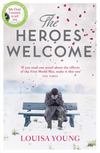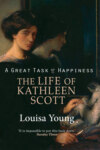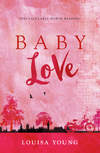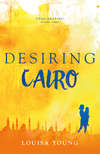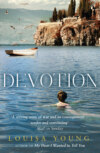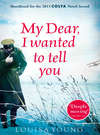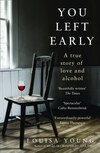Kitabı oku: «The Heroes’ Welcome»

Copyright
The Borough Press
An imprint of HarperCollinsPublishers
1 London Bridge Street
London, SE1 9GF
First published by The Borough Press 2014
Copyright © Louisa Young 2014
Cover layout design © HarperCollinsPublishers Ltd 2015
Cover photographs © Stephen Mulcahey / Arcangel Images (main image); Shutterstock.com (petals, grass and snowdrops).
Excerpts from The Odyssey by Homer, translated by Robert Fagles, translation copyright © 1996 by Robert Fagles. Used by permission of Viking Penguin, a division of Penguin Group (USA) LLC.
Louisa Young asserts the moral right to be identified as the author of this work
A catalogue record for this book is available from the British Library
This novel is entirely a work of fiction. Some characters (or names) and incidents portrayed in it, while based on real historical figures, are the work of the author’s imagination.
All rights reserved under International and Pan-American Copyright Conventions. By payment of the required fees, you have been granted the non-exclusive, non-transferable right to access and read the text of this e-book on-screen. No part of this text may be reproduced, transmitted, down-loaded, decompiled, reverse engineered, or stored in or introduced into any information storage and retrieval system, in any form or by any means, whether electronic or mechanical, now known or hereinafter invented, without the express written permission of HarperCollins e-books
Source ISBN: 9780007361472
Ebook Edition © 2015 ISBN: 9780007361489
Version: 2015-02-24
Praise for The Heroes’ Welcome:
‘Fierce and tender, The Heroes’ Welcome depicts heroism on the grand scale and the importance of the tiniest act of courage’
Observer
‘Young possesses in abundance emotional conviction, pace and imaginative energy, and these qualities will draw readers with her through time and space, as she unfolds the story of the Lockes and Purefoys on their journey through the 20th century’
HELEN DUNMORE, Guardian
‘If you read one novel about the effects of the First World War this year, make it this one. It has brain with its brawn and deserves a hero’s welcome’
The Times
‘Powerful, sometimes shocking, boldly conceived, it fixes on war’s lingering trauma to show how people adapt – or not – and is irradiated by anger and pity’
Sunday Times
‘Energy and charm’
Evening Standard
‘A moving exploration of the war’s toll on a generation … deeply affecting’
Metro
‘A brilliant, passionate, intense examination of what it is to survive a war and to negotiate a peace with a body and mind that have been irrevocably altered’
ELIZABETH BUCHAN
Dedication
RJL
RIP
‘Joy, warm as the joy that shipwrecked sailors feel when they catch sight of the land … only a few escape, swimming and struggling out of the frothing surf to reach the shore, their bodies crusted with salt but buoyed up with joy as they plant their feet on solid ground again, spared a deadly fate. So joyous now to her the sight of her husband, vivid in her gaze, that her white arms, embracing his neck, would never for a moment let him go …’
from The Odyssey,
trs Fagles
‘I knew that I was more than the something which had been looking out all that day upon the visible earth and thinking and speaking and tasting friendship. Somewhere – close at hand in that rosy thicket or far off beyond the ribs of sunset – I was gathered up with an immortal company, where I and poet and lover and flower and cloud and star were equals, as all the little leaves were equal ruffling before the gusts, or sleeping and carved out of the silentness. And in that company I learned that I am something which no fortune can touch, whether I be soon to die or long years away. Things will happen which will trample and pierce, but I shall go on, something that is here and there like the wind, something unconquerable, something not to be separated from the dark earth and the light sky, a strong citizen of infinity and eternity. The confidence and ease had become a deep joy; I knew that I could not do without the Infinite, nor the Infinite without me.’
‘The Stile’
from Light and Twilight,
by Edward Thomas
‘It has taken some ten years for my blood to recover.’
from Goodbye to All That
by Robert Graves
Table of Contents
Cover
Title Page
Copyright
Praise for The Heroes’ Welcome
Dedication
Epigraph
Part One: 1919
Chapter One
Chapter Two
Chapter Three
Chapter Four
Chapter Five
Chapter Six
Chapter Seven
Chapter Eight
Chapter Nine
Chapter Ten
Part Two: 1919
Chapter Eleven
Chapter Twelve
Chapter Thirteen
Chapter Fourteen
Chapter Fifteen
Chapter Sixteen
Chapter Seventeen
Chapter Eighteen
Chapter Nineteen
Chapter Twenty
Chapter Twenty-one
Part Three: 1927
Chapter Twenty-two
Chapter Twenty-three
Chapter Twenty-four
Acknowledgements
About the Author
Also by Louisa Young
About the Publisher
Part One
Chapter One
London, March 1919
Riley Purefoy did not think very much about the war. He didn’t have to. It was part of him. If others mentioned it …
… but then they didn’t: neither the other old soldiers, who had, most of them, realised very quickly that nobody wanted to hear what they might have to say, nor the civilians, who drifted away at the same rate as the soldiers fell silent.
Phrases and scraps, from time to time, slithered back at him. There was a taste in his throat sometimes, unidentified. There was an insistent image of bits of coughed-up gassed lung on the floor of an ambulance, which brought with it the necessity of standing still for a moment. There were moments still, a year and a half after he had stumbled off the battlefield, when the silence confused him as dry land confuses a sailor’s legs. There was Peter Locke’s voice, saying: ‘Then you’re in charge, old boy.’ This last stuck with him, because he knew that however unlikely it seemed, this remained largely true. He was in charge.
Despite his physical damage, Riley was well equipped: a sturdy young man, clear-eyed. So as the months went by, when he did think of war, he thought more of future war, and how to prevent it; of the future children, and how to keep them safe from it, or of the future of his fellow wounded, and how to improve it. He saw people look at him with pity and doubt. He registered the small (or large) involuntary gasps that his scarred face provoked. When a taxi driver drove off because he couldn’t understand what Riley was saying, Riley did his best to conjure sympathy for the man’s embarrassment over natural fucking anger at this continued humiliation.
He was quite aware that not many people thought he’d add up to much, poor fellow. But if he learnt anything from being shot to bits and patched up again, it was this: now is a good time to do what you want.

Riley Purefoy and Nadine Waveney married under a daftly beautiful wave of London blossom cresting over a city that had been at war for so long that it didn’t know what to do with itself. On the wall of the register office a sign read: ‘No Confetti – Defence of the Realm Act’. The flying blossom storm took no notice of that, dizzying eddies of it on the spring breeze, and mad sugar-pink drifts accumulating against the damp Chelsea kerbstones. Nadine, still so skinny she wasn’t having her monthlies, wore Riley’s vest under Julia Locke’s utterly out-of-date wedding dress from before the war, taken in. Riley was in uniform. Peter Locke, Riley’s former CO, tall, courteous and almost sober, was best man. Peter’s cousin Rose was maid of honour, in white gloves, and his son Tom, flaxen-haired symbol of innocence and possibility, was the pageboy. No one else was there. Tom’s mother, Julia, had picked early white lilac and given it to Rose to bring up from Locke Hill, but she didn’t come herself. She was not well enough, or perhaps just embarrassed. It had only been a few months since her own crisis. It had only been a few months since everything.
Afterwards, they went to the pub across the road where, it turned out, Peter had earlier deposited two bottles of Krug ’04, acquired he didn’t care to say how. Rose was in the dark green tweed suit that she’d worn to Peter and Julia’s wedding (though she thought she wouldn’t mention that), and confessed to a small thrill of shame to be in a pub. It was a beautiful ceremony and a happy day. Any fear that anyone might have had for the future of the marriage, its precipitous start, the battered souls of the bride and groom, lay unmentioned. It was a great time for not mentioning. No one wanted to remind anyone of anything. As though anyone had forgotten.

The bride and groom were to spend the wedding night at Peter’s mother’s house in Chester Square, where the tall handsome rooms were still draped with dustsheets and the chandeliers swathed in pale holland, because the old lady still didn’t dare come down from Scotland.
They had not kissed. How could they? Through the long quiet winter of 1918–19 at Locke Hill, Nadine (so jumpy and tender, crop-headed) and he (damaged) had taken long walks with their arms around each other, spent long days curled up together on the chintz sofa, and failed over and over to go to bed at all, because they could not go to bed together, and did not want to part. They had paused, like bulbs underground in winter, immobilised, and reverted to a kind of reinvented virginity, as if their tumultuous romance had never been consummated during the unfettered years of war.
That the war was over, and things were to be different, was the largest truth in the house. The next was that nobody – apart from Rose – had much idea of what happened now. But for Riley and Nadine, one immediate shift was that the sexual liberties allowed by the possibility of imminent death had disappeared like a midsummer night’s dream. Their reborn chastity happened passively and without comment between them. This had seemed to each of them at the time a form of safety, but by their wedding night Riley had become hideously aware of it, and also of the fact that he did not know what his new wife was thinking on the subject. He recalled the letter she had sent him in 1915: ‘Riley, don’t you ever ever ever again not tell me what is going on with you …’ But saintly woman though she was – in fact because of her saintliness – he could not – and he was aware of the irony here – find the words.
Riley brought with him to Chester Square various accoutre-ments: his etched brass drinking straw made from a shell casing, a gift from Jarvis at the Queen’s Hospital Facial Injuries Unit; a rubber thing with a bulb, for squirting and rinsing; small sponges on sticks, for cleaning; mouthwashes of alcohol and peppermint. His pellets of morphine, carried with him in a little yellow tin which used to hold record-player needles, everywhere, always, just in case. In case of what? he thought. In case someone shoots my jaw off again?
Riley’s mouth had for so long been the territory first of bloody destruction, then of its complex rebuilding by surgery and medical men, that he had trouble seeing it as his at all. Eating was still difficult, and took a long time. Trying to chew was difficult, trying to swallow, trying not to choke, trying not to dribble, even though he couldn’t always tell that he was dribbling because his nerve endings could not be relied on to know where they were. Trying to cough, or stop coughing. Learning to live with somewhat undisciplined saliva and phlegm – though that had improved a lot, thank Christ – and to accept that even when he had learnt to live with it, other people would always find it disgusting. Learning to accept when Nadine passed him a handkerchief. Learning to accept endless generosity and inventiveness with soups and coddled eggs and milk puddings, fools and mousses and shape from Mrs Joyce, the cook: baby food, he’d thought, then get over it, and he was getting over it. He still did not care to eat with others. The embarrassment of some strangers, the inappropriate concern of others, Nadine’s careful developed calmness, all exhausted him, but worse in its way was his own requirement of himself that he calmly ignore the food that started bit by bit to reappear as the privations of rationing faded away – fragrant Sunday joints, the clean crunchy salads, the chokable pies, the sweet smells of potatoes frying in butter, chicken roasting, bread baking. At times he was afraid of his own breath, of stagnant saliva, of deadened unresponsive lips, of his medicalised mouth in the normal world. He would clean it fanatically; and he would lapse into silence, sometimes, for several days, knowing that speaking was exercising, and he should do it, as he should eat. At times, during the winter, after their reunion and before their wedding, he had not known what he had to offer her.
The rooms at Chester Square were graceful and quiet. Rose, tall kind Rose who had nursed him at the Queen’s, had set up a decanter of whisky and some cold supper in the drawing room.
‘Have a sandwich,’ he said to Nadine. Egg and cress, he thought. Rose made them specially because they’re soft. He knew it was courtesy and affection, but in his longing for normality he couldn’t help feeling it as controlling, as singling him out … Oh it’s not the kindness of Rose’s response that singles you out, Riley. It’s the damage itself. He was so grateful. He was getting tired of being grateful. But he was grateful.
Nadine, perched on the corner of a sofa half unfurled from its covering, took a little white triangle. He knew she didn’t like eating in front of him either, though he pretended he didn’t, hoping that she would get over it. It was another thing he had to be gracious about. They each drank a little whisky, and were silent. He was terribly happy. Look at her! With her yellow eyes and her sideways smile. But—
It is our wedding night. But—
He couldn’t – didn’t want to – put it into words. Oh the irony! If he could speak clearly, there would be no need to say anything! If my mouth was normal, I wouldn’t have to speak, I could just … act … He looked at her, and in his mind his look became a caress, a touch, an invitation, a demand … how could he follow up such a look? How could she respond to it? He looked away.
Nadine, as nervous as him, stood suddenly, and said, ‘Well!’ cheerfully, smiled at him, and started for the door. He stood too, wondering whether he would follow, or wait. He didn’t know. He went out into the hall and as she reached the landing she looked back at him, and said, briskly, ‘It doesn’t matter, you know.’
He, who knew her so well, did not know what she meant by it. It doesn’t matter? Of course it bloody matters.
She was off, almost scurrying, into the bedroom. So he went up, and stood in the doorway. She was further round, out of view, putting on a nightgown – a new one.
Then he was in the bathroom, trying to clean his mouth without disgusting illustrative noise, and his thoughts flooded in: We should have talked of it. I should have kissed her before this. I should have prepared – myself – her . . . But how could he kiss her? He had tried it out, on his own arm, like a youth. His lips had lain there, incompetent. He could not kiss her – not her mouth, her breast, nor any part of her. He could remember kissing her. It tormented him.
When he came back she was in bed, so he undressed. The previous times – before, during the war – they had blushed and fumbled and laughed and burned up and torn each other’s clothes off: the first time, in the field; the miraculous interlude in Victoria. He had never seen her in a nightgown before, in bed. His wife. Safe and sweet. Her hair had grown back a little over the winter, the wild dark curls starting to coil again. She’d brushed it.
She was smiling up at him – nervously? He didn’t want to make her nervous.
It was pretty clear to him that she couldn’t want him that way. Damaged as he was. How could she?

She was thinking: Why did I say that, on the landing? ‘It doesn’t matter?’ What doesn’t matter?
She’d felt foolish even before the words came out. She thought: I’m sure he would want me, if he was physically, um … She was thinking: I must not pressurise him … but he hasn’t – since – and he’s had so much morphine, over the past years … She didn’t know, actually, if he was still taking it. There were areas of his life where his independence and his privacy were so important to him, which was quite right. Quite right. She had been watching him, cautiously. He did not seem to see himself as a patient, or a cripple, and she was not going to tell him that he was. She didn’t know if he was or not. Even if she had an opinion, it was not her decision.
She had been thinking about this moment for weeks. Something would change, now they were married. The most important thing (which she had borne in mind all winter, and was, she felt, doing well at integrating) was that, specially as she had been a nurse, she absolutely must not become his nurse. But this vital consideration made it difficult for her to, for example, enquire about whether the morphine had affected his … Hm.
To be blunt …
She didn’t know if he would be physically capable. She didn’t know how to ask. Or if she wanted to ask. She hadn’t wanted to spoil anything by asking. They had always been so magically immediate with each other, understanding, catching eyes. Since they were children they’d had that! Apart from the one great stupid error, his attack of spurious honour, of over-gentlemanliness, when he’d told her he had a girl in France, when in fact there was no girl, it was that he hadn’t wanted to inflict his wounds on her – oh, Lord, the kindness he had meant by that, and the arrogance … Apart from that, that little thing, they’d never really had to ask, or explain, about anything. She didn’t want to ask now. She wanted the romantic. She wanted them to be magical, not to have to ask or explain. They had to be romantic. Because if they weren’t romantic, what were they? She was aware how their union could be seen. She was damned if she was going to be seen as his nurse, and him as some pathetic, incapacitated …
Stop it. Nobody thinks that. And who cares if they do?
And a woman is not meant to want it anyway …
Yes, but I’m not that kind of squashed, repressed Victorian woman – and I bet they did want it, they just didn’t dare say …
And …
He came back in his pyjama bottoms. His face, so extraordinary. His mouth. The beautiful upper lip, the battlefield below. The skin above smoothed ivory by morphine, the scars below carefully shaven, not hidden, not displayed, only the moustache worn a little long, like the hair of his head, so as not to frighten people too much. His beautiful grey eyes. Twenty-three years old, looking a hundred. She watched his arm reaching in the shadow to turn out the lamp: the long scar from the Somme streaked across the muscle, shining. The glow from the streetlight outside fell on his strong back, the shape of his shoulders, the curve of his spine. He reached for his pyjama top and she said, ‘Don’t.’ And saw him misunderstand it.
He pulled it up over his shoulders.
‘No,’ she said. ‘I didn’t mean …’ and as he came to lie by her she slid her arms inside the shirt, and he sighed.

And one thin layer of tension flew off him – but …
But what about my mouth? he thought. I don’t … She can’t …
They didn’t kiss. They lay entwined on the cool sheet. Awake. Unconsummated.
She doesn’t want it, he thought. I mustn’t.

He’s not … He can’t, she thought. And I can’t—
Well.
If that’s it …
I must respect that.

The proximity of flesh was irresistible. Riley bit his tongue, natural upper teeth to false lower, and rolled over, so his back was to her, so she would not notice.
Oh, she thought.
After quite a long time, they went to sleep.

The day after the wedding, they went to Nadine’s parents’ house on Bayswater Road. She had not been home since the end of the war. Not for Christmas. Not at all. She had written bland letters to her mother saying she was all right, and less bland ones to her father saying she would come soon, but the fog of shock and exhaustion in which they had been dwelling at that time had prevented her from properly recognising the cruelty of staying away. Neither she nor Riley had even told their parents where they were living. It had been part of the silent arrangement. Nothing, till spring. Just a suspension between past and present which allowed them to attend to neither.
They stood on the steps in the front garden, their backs to Kensington Gardens, the door shiny before them, and each gave the other a brave look as Riley rang the bell. Nadine took Riley’s hand, and he felt the flow of feeling shared and supported by the physical union: two bodies stronger than one, two hearts more capacious. Being – becoming – more than the sum of their parts.
A maid answered, and he wondered what had become of Barnes: perhaps he joined up after all. Perhaps he got killed. Or perhaps he got that guesthouse with Mrs Barnes. Let’s hope so. It’s been six months since the end.
Lady Waveney was home, and Sir Robert too, the maid said, Who could she say was calling?
‘I’m Nadine,’ said Nadine, and the girl blinked, and said: ‘Oh! She’s in there, Miss …’, and stared: the prodigal daughter returning, and with a wounded officer …
Riley knew the look, and what it meant: Oh my word, oh poor thing, such nice eyes, and it’s not right to stare, but how can she bear him? He didn’t stare back at the maid. And when he and his bride went into the beautiful, unchanged, unforgotten drawing room, all velvets and spring light and rather good paintings, he allowed his new mother-in-law a few moments, too, to look at his face, before he looked up at hers. His determination and habit was to wear his scars without apology but with kindness. The last time they had met (Jacqueline, Lady Waveney, what was he meant to call her?), he had had only his scar from Loos, the little dashing cut on his cheekbone, the clean, romantic, officer-in-a-duel-of-honour scar. So he would be a shock, with his reconstructed jaw, his twisted mouth, his slightly too-long hair lying only slightly effectively over the scars where the skin flaps had been taken from his scalp and brought down to cover his new chin. He was beginning to realise that he did not know what he looked like to anyone else. People said his surgeon, Major Gillies, had done a good job, and Major Gillies himself said it had healed well, and Riley chose to believe this was true. It would have been unhelpful to do otherwise. However. He had learnt that he had to be patient, and allow everyone who saw him their own response, and if necessary lead them through their shock and doubt to the fact that he had accepted his lot. This despite the fact that his speech was not entirely clear. Oh, and he had to let them understand that unclear speech did not equate to an unclear mind. This too was turning out to be part of his responsibility, every time he spoke to someone new. Or, indeed, someone from before. He hadn’t on the whole been meeting new people.
Jacqueline, wearing a luxurious old-fashioned kind of house-gown, her red hair piled up, was doing something with a plant by the long window at the back of the drawing room. She turned, and blinked three times. Once to see her daughter. Once to see her with Riley Purefoy. Once to see Riley Purefoy’s face. Then she lifted her hands – to open her arms? For an embrace? Riley couldn’t tell. It turned somehow into a shrug, which was visibly not what she had meant. She put down her secateurs.
‘Oh my dear,’ she said. ‘Oh my dear.’
‘Hello, Mother,’ said Nadine.
Neither of them advanced across the blocked-out distance between them. They seemed to him to be suspended. So he stepped forward, held out his hand to Jacqueline, and said, in his odd, quiet, bold voice, mangled a little through the straitened mouth: ‘Lady Waveney – I am pleased to see you. You look well.’
‘Captain Purefoy,’ she said, nothing more than another blink betraying any response. He was impressed.
‘Mr, I think, by now,’ he said.
‘Oh no,’ she said, with a little passion in her voice. ‘Always Captain. Always. Will you have tea?’
‘Thank you, Mother,’ said Nadine. ‘We will.’
The ‘we’ stopped Jacqueline in her movement towards the bell. She turned, looked, saw: gold ring.
‘Is Sir Robert at home?’ Riley said gently. ‘I need to speak to him. I have left it rather late already …’
‘So you have,’ said Jacqueline. She raised her eyes to stare at him, at her daughter, at him again. No one dropped from anyone else’s look.
‘Well, I …’ said Jacqueline.
Riley observed: Jacqueline covering shock with bred-in-the-bone manners, the calmly beautiful half-smile she wore whenever she didn’t know what to do. Nadine, still in her mother’s presence feeling thirteen years old, naughty, resentful and blank. He saw the careful breath with which Nadine prepared to start the speech she had for her mother.
‘I’ll just call your father,’ Jacqueline interrupted, undercutting her daughter at just the most effective moment. She crossed to ring the bell. The maid, standing agog in the hall, stepped into the room. ‘Call Sir Robert, Mary.’
And Nadine instead burst out: ‘I do hope, Mother, that you’re not going to make some stupid fuss about this, because it’s done, it’s right, and with or without your blessing Riley and I are—’
My brave fighting girl, he thought.
‘Oh no,’ said Jacqueline faintly. ‘My dear. No.’
Nadine fell silent. Her mother looked, in a way, as if she was thinking about something else entirely. Silence drifted round the lovely room; the pale panelling, the dark velvets, the sea colours, the windows full of leaves and light.
What does she mean by that? No, what?
‘So, have we your blessing?’ Riley asked, cautiously. He was fairly sure that was not what she had meant.
Jacqueline looked up. ‘I invited you in here, Riley, all those years ago. Me. I thought you were sweet. I thought you needed drying off and feeding, and you responded, and look at you now. Look what you have made of being knocked into the Round Pond.’
He said nothing. It was not clear whether this was sneering or admiration. Or both.
‘You are an astonishing boy.’
He hadn’t been called a boy in a long time. Ah – it makes her feel better about me. As if I’m not a man, and I haven’t – ah—
Well, madam, you’re closer than you know.
Sir Robert came down the stairs: a clattering, hurrying step, and a figure at the door.
‘What’s going on, my dear?’ he said, before he saw: and when he did the joy in his face was heart-melting, immediate, irresistible. There was no difficulty here. Riley wondered how much it hurt Jacqueline to see the bare-faced love Nadine gave her father, running to him, burying herself in him, visibly radiating the joy she took in the fatherly smell of him; his inky fingers, greyer hair, familiar voice. He held her away to look at her, held her back to his chest to embrace her, held her away again to admire her – and noticed Riley.
‘Purefoy!’ he exclaimed. ‘You cuckoo! Where’ve you been? Good Lord – excuse me, darling – my word.’ He stared, for a moment only, at the face, then gave a tiny sigh and a shake of the head. ‘Well, Purefoy—’ he said, and he strode over, attempted to shake hands, and couldn’t stop himself from embracing.
‘It seems—’ said Jacqueline, with a slightly twisted smile, but Riley broke in and said: ‘Might I have a word with you, sir? In private?’ So little had been correctly done. He would do it correctly. As far as possible.
Sir Robert couldn’t make out what Riley was saying. Riley repeated it.
‘Modern world, Purefoy,’ said Sir Robert, getting the words, but not the purpose of them. ‘No secrets here …’ But he sensed there was something, so he allowed himself to be manoeuvred out of the room, into the hall. The maid skittered from under their feet, and there they foundered for a moment. Riley did not know where to go. The library, he felt, from novels, was the correct location. There was no library.
Ücretsiz ön izlemeyi tamamladınız.
